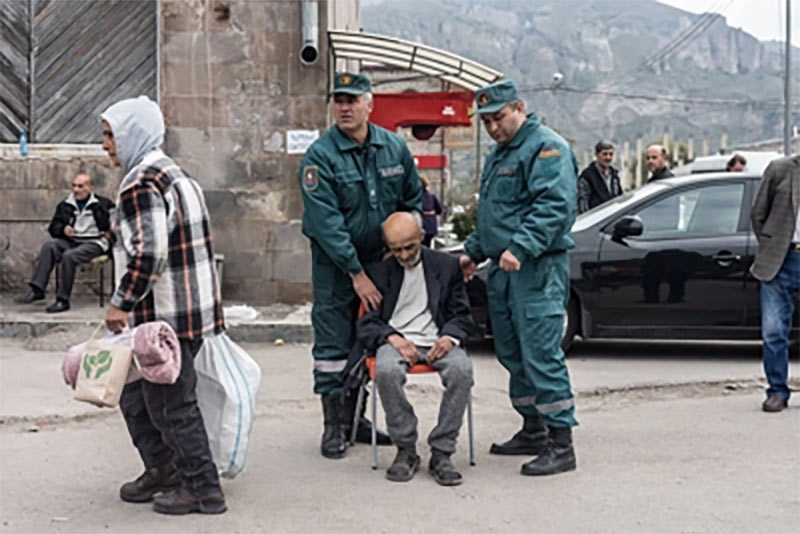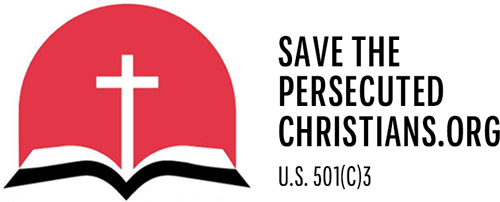The truth about Armenia and the campaign to erase Christianity

By Dede Laugesen | The Christian Post | Thursday, July 24, 2025
Later this month, I will travel to Armenia as part of a delegation of American Christian leaders. We are going to visit an ancient Christian civilization that is, right now, under assault.
It is a shame that so many Christians in the United States do not know that Armenia was the first country to declare Christianity as its official religion, and it has remained a Christian nation to this day. My hope is that by going, listening, praying, and bearing witness, I can do my part to compel greater attention to the tragedy that is unfolding there.
The year 301 CE, when King Tiridates III declared Christianity the official religion of Armenia under the guidance of Gregory the Illuminator, should be etched into the collective memory of Christian history. This Christian primacy is supported by primary sources, archaeological evidence, and ecclesiastical tradition and accepted by historians, theologians, the Vatican itself, and countless other academic and religious institutions.
Over the centuries, Armenia has preserved its Christian identity through conquest, forced conversion, genocide, and geopolitical betrayal. Despite being surrounded by autocratic regimes and militant ideologies that contest its very existence, it has remained faithful.
In 2023, the world watched as over 120,000 Christian Armenians were expelled from their ancestral homeland of Artsakh (Nagorno-Karabakh), a self-governing region within Azerbaijan’s borders. It was a brutal campaign of ethnic cleansing by Muslim-majority Azerbaijan, punctuated by the systematic erasure of Armenian Christian culture. Centuries-old churches were desecrated or destroyed. Cemeteries were bulldozed. Crosses were removed. Icons defaced. Armenian inscriptions erased. Wherever possible, the historical record was obliterated.
And now, as Armenia reels from the loss of its ancestral lands, it faces another geopolitical threat. Azerbaijani President Ilham Aliyev has renewed demands for a “Zangezur Corridor” — a land bridge through Armenia’s Syunik Province connecting Azerbaijan proper to its Nakhchivan exclave and, by extension, Turkey and the broader Turkic world. Standing in the way is Armenia’s only land corridor to Iran, a vital strategic and economic partner.
Aliyev insists on “unimpeded” access through Armenian territory, without customs, oversight, or border controls. The fear is that the world will again look the other way, even though other countries have exclaves, yet there is no international precedent for what Aliyev demands.
And even as Armenia contends with these threats, another campaign is underway — in recent months, a fringe theory has resurfaced, promoted by voices aligned with the Azerbaijani regime, claiming that the ancient kingdom of Caucasian Albania — not Armenia — was the first Christian nation. This myth has made its way into academic forums, including a recent Vatican conference. The lack of a firm rebuttal from participants risks lending this nonsense a patina of legitimacy.
Let us be clear: there is no serious historical evidence to support the idea that Caucasian Albania adopted Christianity before Armenia. The Christianization of Albania occurred in the mid-to-late 4th century, largely facilitated by Armenian missionaries. Fifth-century historians such as Agathangelos and Koriun document not only Armenia’s early conversion but also the role of Armenians in spreading the faith to neighboring lands. The Albanian Church, which no longer exists, eventually came under the jurisdiction of the Armenian Apostolic Church. Even its alphabet was created by the Armenian scholar Mesrop Mashtots decades after Armenia’s own conversion.
This revisionist narrative is not about history but the crudest of politics. It is part of a broader effort to delegitimize Armenian identity and erase its ancient presence from the region — not just in Artsakh but across the South Caucasus.
We live in an age where false narratives, if repeated often enough and in prestigious settings, can displace truth. Silence in the face of such propaganda can be mistaken for acquiescence. That is why we must speak up. Because if we don’t, we allow history to be rewritten by those with the loudest microphones and the most oil money.
When I travel to Armenia, I will walk through monasteries older than most nations, pray in the 9th-century monastery of Tatev, and stand at the pit where Saint Gregory the Illuminator was once imprisoned. Our delegation will meet displaced families, visit border villages, and speak with Armenia’s Foreign Ministry and Security Council. We will meet up with the brave witnesses whom my organization, Save the Persecuted Christians, helped to bring to America last September to testify to the brutal 9-month blockade and bombing campaign that forced the exodus from Nagorno-Karabakh in 2023. We go to listen. We go to offer solidarity. And we go to remind our Armenian brothers and sisters that they are not alone.
History is not just about the past — it shapes the present and determines the future. Armenia’s survival as a sovereign, democratic nation must not be sacrificed on the altar of appeasement. And its role in Christian history must not be erased by cynical campaigns of revisionism.
We urge Christians everywhere to learn about Armenia. Inform your churches. Pray. Write to your representatives. Urge the release of Armenian political prisoners. Demand the protection of Armenian heritage sites. Insist that Azerbaijan abandon its threats and demands.
The survival of the world’s first Christian nation should matter to every person of faith.
